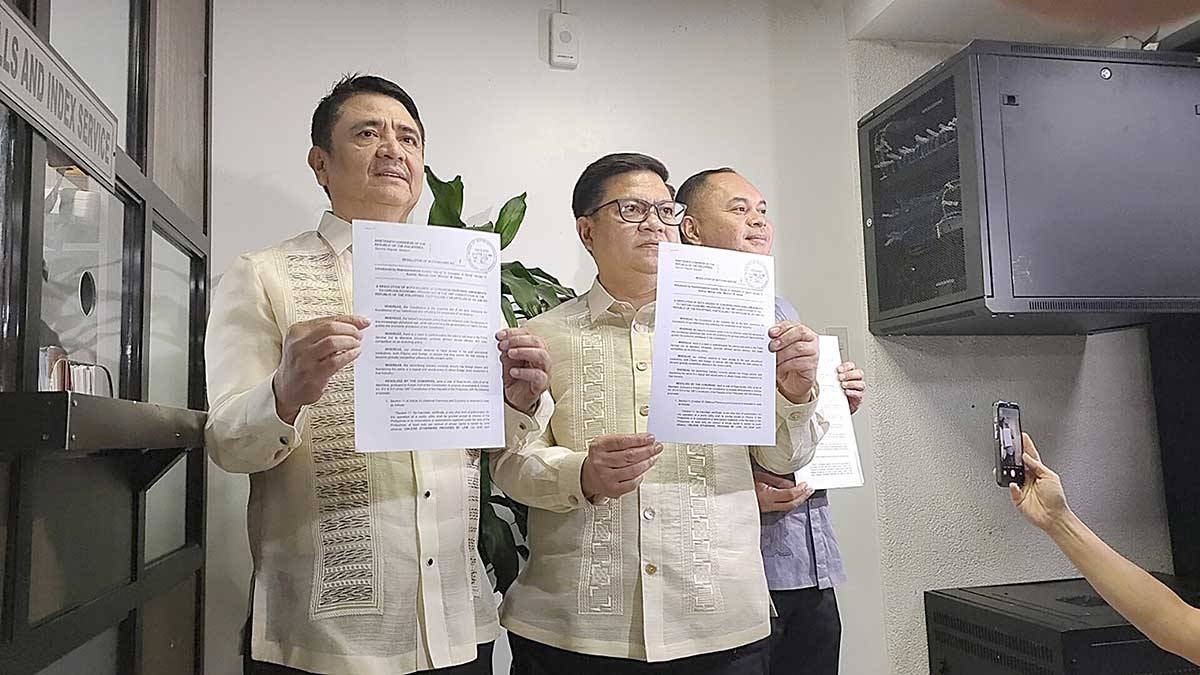The House of Representatives has taken a significant step towards amending the Constitution by filing Resolution of Both Houses (RBH) 7. This resolution aims to make changes to the same constitutional provisions listed in the Senate’s RBH 6. Senior Deputy Speaker Aurelio “Dong” Gonzales Jr., Deputy Speaker David “Jayjay” Suarez, and House Majority Leader Manuel Jose “Mannix” Dalipe are the key figures behind this resolution.
During a press briefing, Dalipe explained that the provisions included in RBH 7 are identical to those filed by the Senate in RBH 6. The purpose of these amendments is to address economic provisions in the 1987 Constitution and alleviate any concerns or doubts surrounding them. By aligning with the Senate version, the House hopes to dispel any fears and encourage healthy debate and discussion.
Gonzales highlighted that the only difference between RBH 7 and RBH 6 is the absence of the phrase “Be it enacted by the Senate and the House of Representatives of the Philippines in Congress assembled” before the “whereas” clauses in RBH 7. Both resolutions focus on amending Article XII (Section 11), Article XIV (paragraph 2 of Section 4), and Article XVI (paragraph 2 of Section 11) of the Constitution.
The proposed amendments introduce the phrase “unless otherwise provided by law” to the relevant provisions. Additionally, the word “basic” is added before “educational institutions” in the first sentence of paragraph 2, Section 4 of Article XIV. These changes aim to provide flexibility and adaptability while ensuring the protection of the country’s economic interests.
Suarez emphasized that the authors of the resolution aim to foster healthy debate and discussion. They believe it is essential for the House to conduct its own hearings on the matter, aligning with the message from President Rodrigo Duterte to encourage open dialogue about charter amendments. The House seeks to play an active role as a co-equal partner in Congress, initiating hearings and discussions alongside the Senate.
Camarines Sur Representative Luis Raymund “LRay” Villafuerte Jr. expressed the importance of the House’s involvement, stating that while the Senate has already filed RBH 6 and is conducting hearings, the House must also begin its own hearings and discussions on the matter. Although the House hearings have not yet been scheduled, Dalipe assured that they would work diligently to expedite the process.
It is worth noting that prior to the filing of RBH 7, the House had expressed its willingness to adopt the Senate version of economic Charter Change (Cha-cha). However, with the filing of this resolution, the House is taking a proactive stance and asserting its role in the constitutional amendment process.
Both RBH 6 and RBH 7 propose a constituent assembly as the process for amending the Constitution. This approach involves the joint participation of the House of Representatives and the Senate. Through this collaborative effort, the government aims to address economic provisions and pave the way for progress and development.
In conclusion, the House of Representatives has filed Resolution of Both Houses (RBH) 7, which aims to amend specific constitutional provisions. By aligning with the Senate’s RBH 6, the House seeks to address economic provisions and initiate healthy debate and discussion. With the filing of this resolution, the House is actively asserting its role in the constitutional amendment process, ensuring that all voices are heard and considered.







